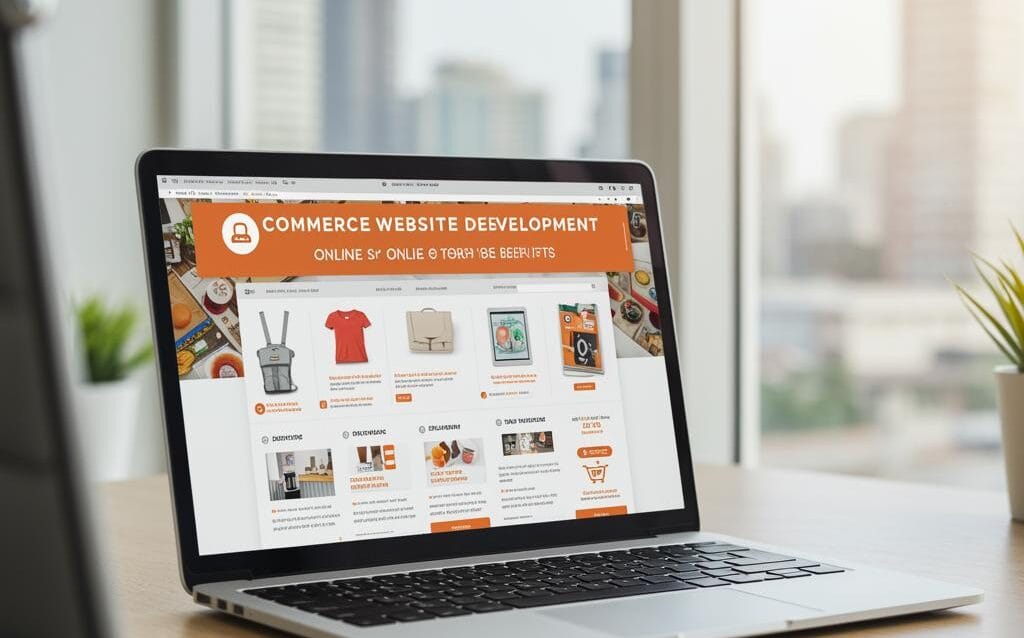Ecommerce Website Development: Benefits for Online Stores
The Benefits of Ecommerce Website Development for Online Stores
In today’s digital age, having a robust online presence is no longer optional for businesses; it’s a necessity. For retailers, this translates directly into having a well-developed ecommerce website. While many businesses start with simple online listings or social media storefronts, investing in dedicated ecommerce website development offers a wealth of benefits that can significantly impact growth, profitability, and brand recognition. This article delves into the key advantages of developing a tailored ecommerce website for your online store.
Enhanced Brand Control and Customization
One of the primary benefits of owning your ecommerce website is the unparalleled control you have over your brand. Unlike selling through third-party platforms, you dictate the entire customer experience, from the initial landing page to the final purchase confirmation.
- Complete Design Control: You can customize every aspect of your website’s design to perfectly align with your brand identity. This includes color schemes, typography, imagery, and overall layout. This consistency strengthens brand recognition and builds trust with customers.
- Unique User Experience: Tailor the user journey to your specific target audience. Implement features and functionalities that cater to their needs and preferences, creating a more engaging and satisfying shopping experience.
- Brand Storytelling: Your website provides a dedicated space to tell your brand story, showcase your values, and connect with customers on a deeper level. This helps differentiate you from competitors and fosters brand loyalty.
Improved Customer Experience and Personalization
A well-developed ecommerce website allows you to create a superior customer experience that drives sales and fosters long-term relationships.
- Personalized Recommendations: Implement features that recommend products based on browsing history, past purchases, and demographics. This increases the likelihood of upselling and cross-selling.
- Seamless Navigation: Ensure your website is easy to navigate with clear product categories, search functionality, and intuitive filtering options. This reduces friction and encourages customers to explore your offerings.
- Mobile Optimization: In today’s mobile-first world, a responsive website is crucial. Ensure your website adapts seamlessly to different screen sizes, providing a consistent and enjoyable experience across all devices.
- Dedicated Customer Support: Integrate live chat, FAQs, and other support resources directly into your website to provide timely assistance and address customer inquiries efficiently.
Increased Sales and Revenue Potential
A professionally developed ecommerce website can directly translate into increased sales and revenue for your business.
- Expanded Reach: Your website is accessible to customers worldwide, expanding your potential market far beyond geographical limitations.
- 24/7 Availability: Your online store is open for business around the clock, allowing customers to shop at their convenience, regardless of time zone.
- Targeted Marketing Campaigns: A dedicated website enables you to run highly targeted marketing campaigns using SEO, social media advertising, and email marketing. You can track your results and optimize your campaigns for maximum ROI.
- Secure Payment Processing: Integrate secure payment gateways to provide customers with a safe and reliable checkout experience. This builds trust and encourages them to complete their purchases.
Data-Driven Insights and Analytics
Ecommerce website development provides access to valuable data and analytics that can inform your business decisions and drive continuous improvement.
- Track Customer Behavior: Monitor website traffic, browsing patterns, and purchase history to understand customer preferences and identify areas for improvement.
- Analyze Sales Performance: Track sales data by product, category, and marketing channel to identify top-performing items and optimize your marketing efforts.
- Identify Trends and Opportunities: Analyze data to identify emerging trends and opportunities in your market, allowing you to adapt your offerings and stay ahead of the competition.
- Improve Website Performance: Use analytics to identify bottlenecks in the user experience and optimize website performance for faster loading times and improved conversion rates.
Cost-Effectiveness in the Long Run
While developing an ecommerce website requires an initial investment, it can be more cost-effective than relying solely on third-party platforms in the long run.
- Reduced Transaction Fees: Avoid paying hefty transaction fees to third-party platforms for every sale.
- Lower Marketing Costs: Targeted marketing campaigns on your own website can be more cost-effective than relying on generic advertising on third-party platforms.
- Increased Customer Loyalty: A positive customer experience on your own website can lead to increased customer loyalty and repeat purchases, reducing the need for constant customer acquisition efforts.
- Scalability: Your website can be easily scaled to accommodate growing traffic and sales volumes, without being constrained by the limitations of third-party platforms.
Conclusion
Investing in ecommerce website development is a strategic decision that can significantly benefit your online store. By providing enhanced brand control, improved customer experience, increased sales potential, data-driven insights, and long-term cost-effectiveness, a dedicated website empowers you to build a thriving online business. While third-party platforms can be a good starting point, owning your own ecommerce website is essential for sustainable growth and lasting success in the competitive online marketplace. Consider consulting with an experienced ecommerce development team to create a website that meets your specific needs and helps you achieve your business goals.
“`

